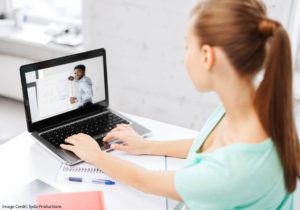
When teachers hear about an intriguing new approach, like–say–“flipping the classroom,”we’re inclined to ask: “but does it work?”
Let me propose a different question: “under what circumstances does it work?”
After all, we should assume that many teaching techniques work for this teacher instructing these students in this topic. Alas, those same techniques might not work for that teacher teaching those students this other topic.
So, ask not “does flipping the classroom work?” Instead, ask “does flipping the classroom help seventh graders in Germany learn three basic algebraic principles?”
That question might sound obscure. (Okay, I’m sure it sounds obscure.)
But: research can answer that second question. It can answer the first only by answering the second dozens (or hundreds) of different ways.
So, Does It?
Here’s a very particular example. Doctors in Finland have to write very particular kinds of insurance certificates. Therefore, Finnish medical schools have to teach future doctors to write them.
So our question is: “Does flipping the classroom help Finnish medical students learn to write insurance certificates?”
To answer that question, researchers did everything you’d want them to do. They had one professor teach the lecture-only version of that skill. The med students then practiced at home.
For a different group of med students, the professor created a short video for students to watch at home. And, they practiced the skill in class with the professor’s guidance.
Which group learned better?
The Envelope, Please
The flipped classroom group learned better. A LOT BETTER. The cohen’s d value was 2.85. (I’m typically delighted by a d value of 0.50 or higher. I can’t remember another 2.85.)
So, clearly all teachers should start flipping the classroom–right?
NO WE SHOULD NOT.
This study showed that Finnish med students learned certificate writing better this way.
But, this is a niche-ey topic indeed.
These are fourth year med students. They’re nearing the end of a highly technical education. They’re as good at school as any students on the planet.
Also, they’re learning a discrete skill. I don’t know much about Finnish medical insurance, but I’m guessing it’s quite a distinct genre. The video covering this skill lasted four-and-one-half minutes.
In other words: if you’re teaching very advanced students a very narrow topic, then this study might encourage you to flip the classroom.
But, if you’re teaching beginners, or you’re teaching complex and abstract material, you might want to find other research before trying out this technique.
For instance: this study of students learning epidemiology showed that flipping the classroom made essentially no difference.
Final Thoughts
I have a research adjacent (although, not research supported) opinion about flipping the classroom.
As always, I think the key variable is working memory. The headline is: teachers should have students to do the heavy WM work in the classroom.
So: I guess that the basic principles of insurance certificate writing are easy to understand. But, applying them to specific circumstances can be more challenging.
That is: the application takes more WM. For that reason, watching a video at home and practicing in class with the prof makes sense.
In the case of–say–analysis of literature, those demands are reversed. Students can read stories quite effectively on their own. So, that should be the homework. But, the analysis of that literature requires lots of complex working memory initiative. This sort of discussion should be in-class, with the teacher, and not online.
I’ve never seen research consider flipped classrooms from a WM perspective. But, that framework seems to offer reasonable guidelines–especially if you can’t find research that matches your situation.
After I drafted the post above, I found this recent meta-analysis. The headline is that it found modest benefits to flipping the classroom, but that they were subject specific. Alas, the abstract doesn’t say which disciplines do and don’t benefit. I hope it becomes public soon, so we can find out!





